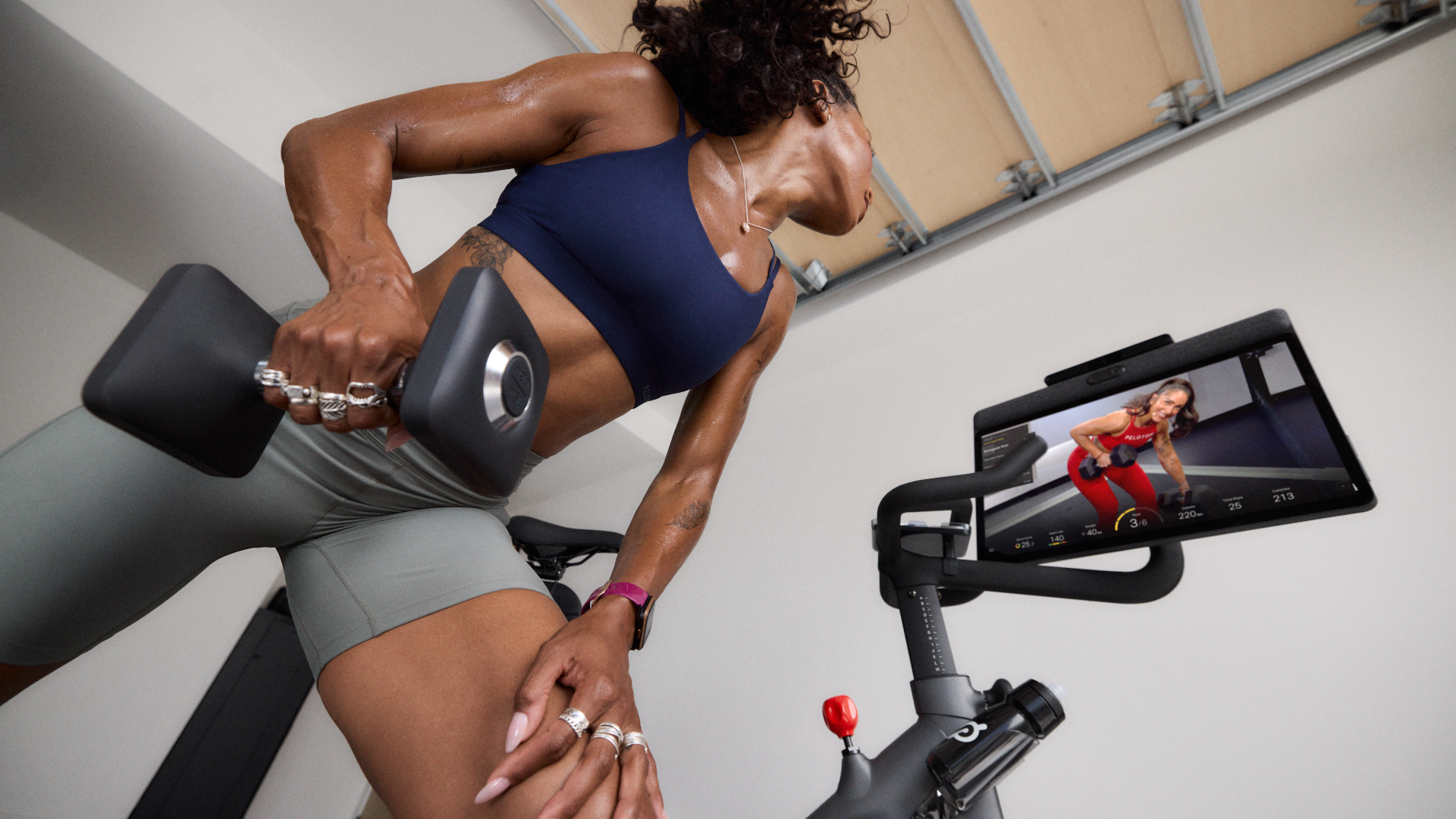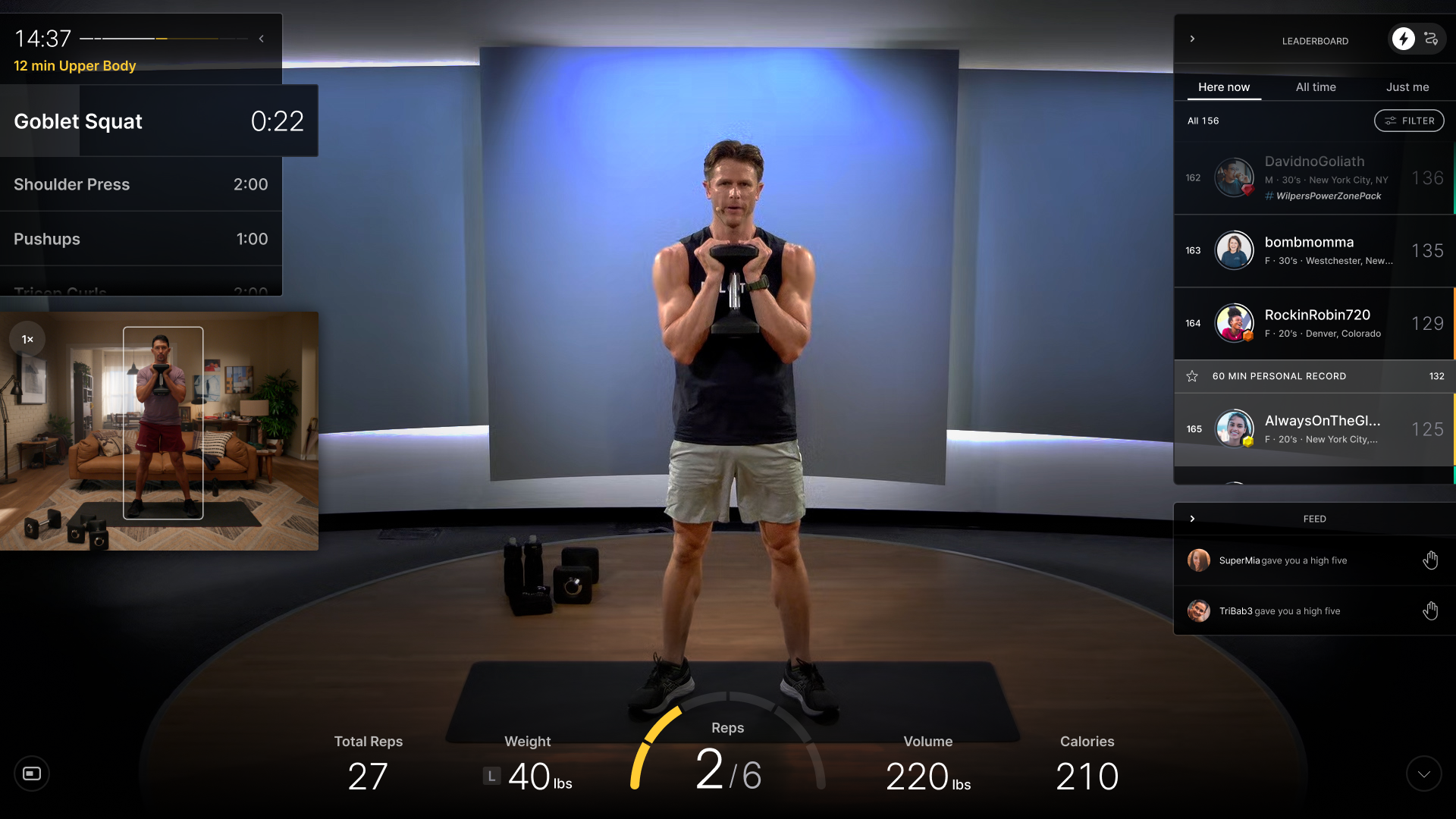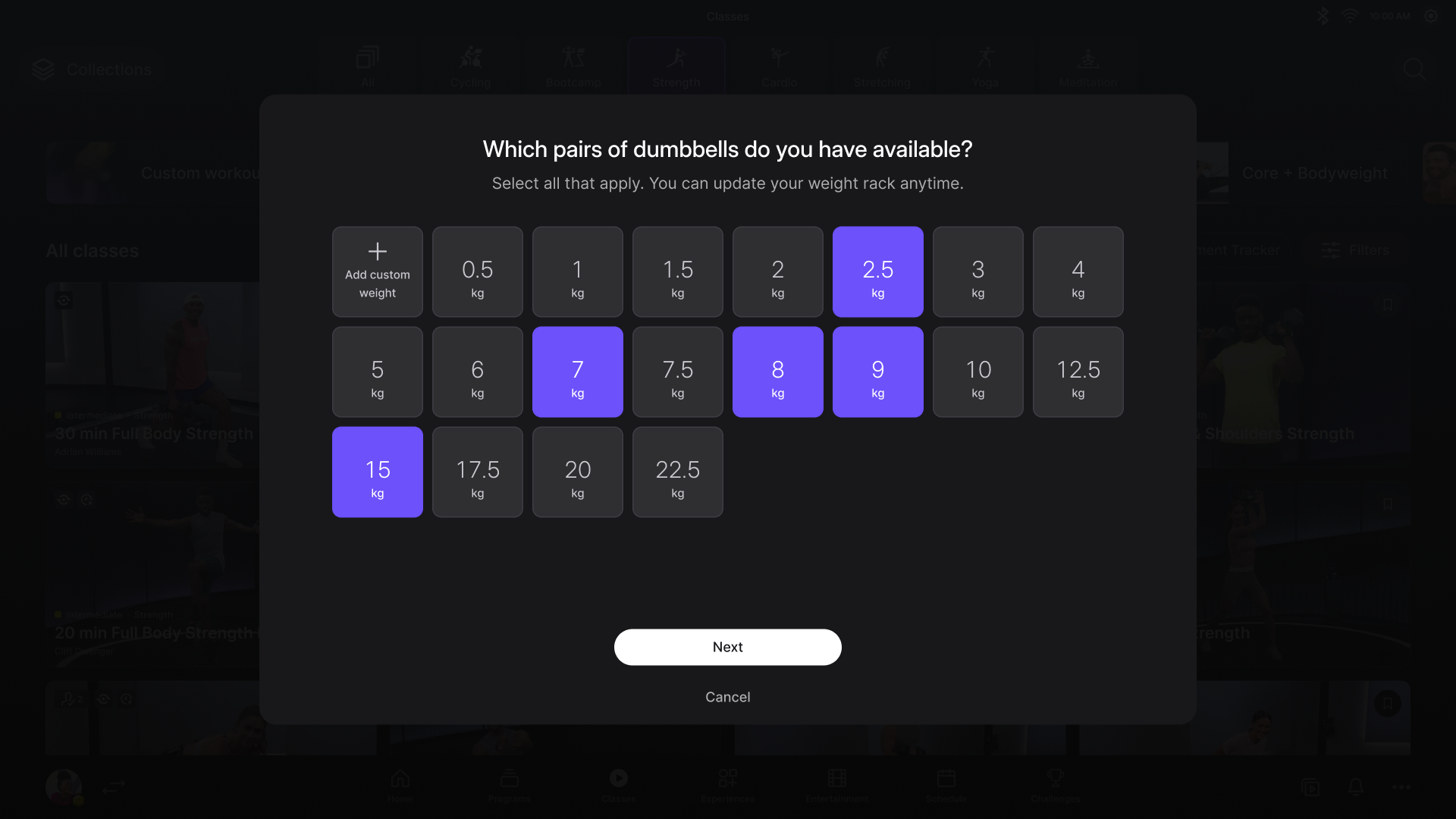I saw Peloton’s new AI coach in action – and it can correct squats in real time
Peloton IQ blends AI and computer vision to deliver live form correction, adaptive training plans, and custom workout generation


Get all the latest news, reviews, deals and buying guides on gorgeous tech, home and active products from the T3 experts
You are now subscribed
Your newsletter sign-up was successful
Peloton isn’t just refreshing its hardware this week. The company is introducing Peloton IQ, a new AI-driven training system designed to bring personalised coaching directly into members’ homes.
I can already hear the groans: “Not another AI update!” Believe me, I get it. Machine learning seems to be shoehorned into everything these days. But from what I’ve seen, Peloton IQ is one of the rare cases where it genuinely improves your home workouts.
During a demo, I saw how the platform combines computer vision, workout history and goal-setting to offer guidance that feels closer to having a personal trainer in the room.
The feature actively tracks your performance, corrects your form, and adjusts your plan as you progress, with minimal user input required.
An AI layer for your workouts
Fundamentally, Peloton IQ analyses everything from your past class history and favourite instructors to your music choices and even the workouts you’ve logged outside the platform on Garmin, Fitbit or Apple Health.
This data informs tailored recommendations and performance estimates, so members get a sense of how tough a ride will feel before they start.
Jon Cilley, Director of Product Management at Peloton, explained that the system is quick to learn: “As long as you’ve logged three or more workouts in the past 30 days, Peloton IQ can start providing tailored recommendations and performance estimates.”
Get all the latest news, reviews, deals and buying guides on gorgeous tech, home and active products from the T3 experts
Form correction in real time

The real step forward comes from the Movement-Tracking Camera built into the new Bike+. Once enabled, it provides a live feed that not only counts reps but also tracks volume and gives instant feedback on form.
If you’re squatting too shallow or arching your back during a press, Peloton IQ calls it out. If your technique consistently falters, the system recognises that you have lighter weights available and suggests dropping down.
If you’re breezing through reps and surpassing targets, it will recommend going heavier instead.
As Cilley put it, “If you’re struggling with form and we know you have lighter weights in your rack, Peloton IQ will suggest dropping down. If you’re flying through reps, it might recommend going heavier.”
All of this can be managed hands-free with voice commands, allowing adjustments to happen naturally during the workout.
Beyond the instructor
What impressed me most was how Peloton IQ changes the way members interact with Peloton’s class library.
Traditional instructor-led sessions are still there, but they can now be taken at your own pace.
A self-paced strength option removes rigid timers and lets you decide how long to rest or how many reps to complete, with the camera and AI still tracking and logging everything.
Classes can auto-advance when you hit your targets, or you can use voice control to move on when you’re ready.
Members can also build their own workouts from scratch by selecting muscle groups, duration and focus areas, then letting Peloton IQ generate a structured plan with demo videos, rep goals and progression built in.
Cilley described it as a way to help members revisit favourite workouts while also giving them the freedom to shape their own training journeys.

Personalisation as strategy
The demo also revealed how Peloton IQ extends beyond a single session by supporting four main goals: getting stronger, supporting weight goals, boosting cardio fitness and promoting longevity.
It provides weekly performance summaries, benchmarks, rep targets and volume lifted over time, and offers insights as specific as: “Your average resistance on 45 min rides rose from ~43% in early June to ~46.5% now – you’re building leg strength”
Nick Caldwell, Peloton’s Chief Product Officer, summed up why the company believes its approach is different: “Our advantage is pairing intelligent software with premium hardware.
During the demo, the AI flagged opportunities for progressive overload when the weight was increased, suggested a yoga flow to improve flexibility after several strength sessions, and incorporated third-party workouts into its insights.
These nudges are tied to specific goals set during onboarding, from strength building and cardio fitness to longevity and weight management.
As Cilley explained, “It’s very much goal-specific. If your aim is strength, cardio fitness, or longevity, Peloton IQ adapts to help you get there.”
Peloton has always thrived on community and instructor charisma, but Peloton IQ adds something more intimate: adaptive training that responds to you in real time.
Instead of being a flashy buzzword, AI here is put to work in a practical way, helping members lift smarter, recover better, and keep progressing.
For anyone investing in the new Bike+, it feels less like a spin bike with a screen and more like a coach who knows exactly when to push you harder – and when to ease off.
Head over to Peloton to find out more about Peloton IQ.

Matt Kollat is a journalist and content creator for T3.com and T3 Magazine, where he works as Active Editor. His areas of expertise include wearables, drones, action cameras, fitness equipment, nutrition and outdoor gear. He joined T3 in 2019.
His work has also appeared on TechRadar and Fit&Well, and he has collaborated with creators such as Garage Gym Reviews. Matt has served as a judge for multiple industry awards, including the ESSNAwards. When he isn’t running, cycling or testing new kit, he’s usually roaming the countryside with a camera or experimenting with new audio and video gear.
You must confirm your public display name before commenting
Please logout and then login again, you will then be prompted to enter your display name.